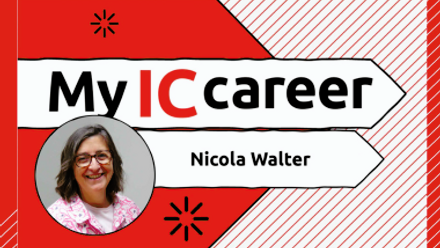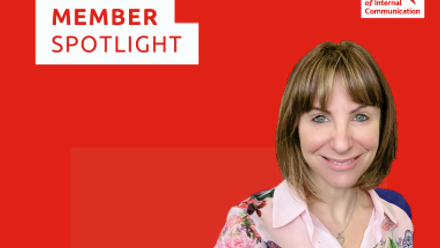But you may find the idea of advancing your career overwhelming or intimidating. Perhaps you find the idea of interviewing again stressful or simply lack belief in your own skills and qualifications.
Fortunately, as a communications professional, you’re in a great position to advocate for yourself and take the next step in your career.
Identifying Your Next Career Steps
If you’re in a role that you enjoy, it can be difficult to identify your next career step. However, even if your salary is adequate and the responsibilities suit you, it may still be worth looking for a step up in your career.
Start your search for a new role internally. As a current employee, you’re in a great position to land a promotion and shouldn’t be put off by the idea of competing with your current peers. You can also see which roles align with your skills and can speak directly to folks who already do the job that you’re considering applying for.
If the prospect of shifting roles internally doesn’t excite you, you can look for similar positions in different companies. The idea of shopping around may feel uncomfortable at first, but the average U.K. worker shifts roles six times during their career. As a specialist in communications, you can quickly put together a relevant CV and advertise your services on online job boards like LinkedIn, Indeed, and TotalJobs.
If a career shift doesn’t sound enticing, you may still be able to gain experience and extra income as a freelancer. The freelancing economy is booming right now, and communications specialists are in demand. You have the skills that businesses need and can demand an impressive hourly rate on sites like UpWork and Fiverr.
Skills
Many talented employees do themselves a disservice in the job market by undervaluing their own skills. This is a major misstep if you are trying to advance your career, as self-advocacy is an important part of landing a new role.
Start by identifying the skills you already have. As an internal communications specialist, you’ve probably developed technical skills associated with writing as well as soft skills like conflict management and leadership. List these skills out in their entirety as they’ll form an important part of your next CV.
When listing your own skills, you may notice that you have a few professional weaknesses. Identifying weak spots on your CV is uncomfortable at first, but leads to growth and improved self-awareness. Knowing your weaknesses gives you a direction for improvement and shows interviewers that you’ve adopted a growth mindset.
For example, if you are applying for a leadership position but currently lack the business acumen to land a role, you can seek training opportunities to improve your business intelligence. Business intelligence gives you a top-down view of the company and allows you to show off your analytical skills as well as creative abilities. You’ll learn to work with data in ways that enhance internal productivity and put you in a perfect position to apply for leadership roles.
Relevant Experience
Experience is a Catch-22 in the professional world. You usually need experience to land jobs but can’t gain experience until you are accepted for a new role or position. However, you can still gain valuable experience for your CV before you get the chance to move into a new role.
Volunteering for development opportunities is a great way to bolster any weaknesses in the “experience” section of your resume. Self-development openings like attending workshops or leading projects can make the difference during job interviews and cover any gaps in your current application.
For example, if you’re known to be introverted, try to gain leadership experience that shows you can overcome your natural inclination to work independently. Introverts can be great leaders who bring calm to the workplace and empower those around them but are often disregarded during the job search. You can overcome this by volunteering to lead small projects in your current company and leveraging analytical insights that extroverted peers might miss.
Finding a Mentor
Finding the right mentor can make a huge difference to your growth. Mentors can advocate for you during job selections and help you spot areas for growth and opportunity.
Finding the right mentor can be a system of trial and error. Ideally, you want to find someone who has more experience than you and aligns with your values. This ensures that you can grow in a safe environment and with a guiding hand that understands your long-term goals.
When you’ve identified a potential mentor, be clear about why you’d like to learn from them and respect their boundaries. Some folks have experience mentoring and will be happy to help, while others may be concerned about the way mentoring will affect their workflow. So, put those communication skills to work and alleviate any concerns they may have.
Conclusion
Taking the next step in your internal communications career can be intimidating. However, with a little self-advocacy, training, and mentorship you can put yourself in a good position to land a promotion or new job. You can even consider taking on a side hustle to gain some experience and earn extra income.
Helpful Resources from the IoIC
Profession Map
Training Courses
Mentoring
IChoseIC Blogs






